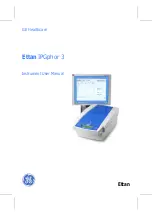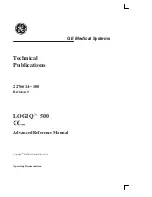
Manufactured by:
Solar Vision inc.
www.solar-vision.ca
T. 1-819-729-0450
1.1 FACTORS AFFECTING AUTONOMY:
The bollard must be installed in an open area
without
nearby structures or dense vegetation that could favor solar module
shading. Please make sure that the distance between the bollard and the elements (e.g. fences, bushes, trees, posts, build-
ings or structures) is sufficient to avoid the long shadows created by the low winter sun. Use a compass to determine the
sun’s path and reduce shading effects.
Other factors affecting autonomy are: sunshine below the monthly averages, very low ambient temperature, snow accumu
-
lation and your local sunshine data.
1.2 HANDLING
Battery must be removed prior to handling the solar bollard.
The bollard should never be manipulated when the battery
is connected and inside the unit.
Use the quick connect/disconnect cable to remove the battery before handling.
1.3 STORING
If you wish to store the battery, the battery needs to be charged in order to prevent permanent damage. When stored, the
battery should be recharged every 6 monts. The battery must be stored at 20°C room temperature to prevent damage.
1.4 DAY-NIGHT TRANSITION
The SB40 solar bollard uses the solar panel to detect day and night periods. The night transition requires a very low bright
-
ness level for 5 continuous minutes. This constraint prevents false night transitions that could be caused by storm clouds in
the evening. If the solar module is covered with snow, the solar module voltage may be too low and may cause light synchro-
nization errors. If the light works erratically, make sure the solar module is clear from debris or snow. The light automatically
corrects synchronization errors whithin 24 hours.
1.5 DEEP DISCHARGE PROTECTION
This protection significantly increases battery lifespan. This protection also prevents permanent damage to the battery
caused by very deep discharges during cold wheather.
When the battery reaches a 50% state of charge, the battery
is automatically disconnected from the system until it’s state of charge reaches 85%
i.e. about 1 day of sunshine in
summer and about 4 days of sunshine in winter.























